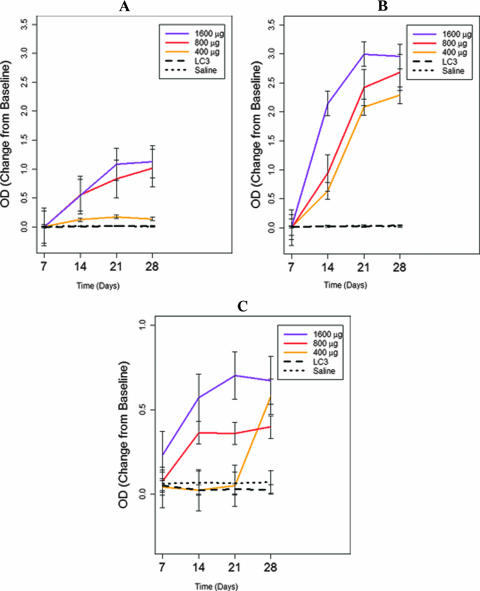FIG. 1.
Effects of immunization of baboons with the polylysine-linked synthetic peptide vaccine (400, 800, or 1,600 μg), the recombinant LC3 protein vaccine (200 μg), or a control vaccine consisting of CT adjuvant (20 μg) alone as assessed by an ELISA using the synthetic peptides from the vaccine as the capture antigen. Compared to controls, immunized baboons exhibited serum antipeptide IgA (A) and IgG (B) responses over 4 weeks (P < 0.03) and at day 28 (P < 0.01). The serum antipeptide IgA and IgG antibody responses increased with the vaccine dose (P < 0.0001). (C) The synthetic peptide vaccine antigen at the 800- and 1,600-μg doses (P, <0.02 compared to the control), but not at the 400-μg dose (P = 0.26), induced an intestinal IgA antibody response to the peptide as measured over 4 weeks. However, at day 28, positive responses to all doses were observed (P, <0.02 compared to the control), and dose-dependent responses were observed over the 4 weeks (P = 0.004). The LC3 vaccine did not elicit any serum IgA (A) or IgG (B) antibodies to the peptide antigen (P = 0.80) compared to the control. The LC3 vaccine did not induce any intestinal antipeptide IgA antibody response (P = 0.46) (C).

